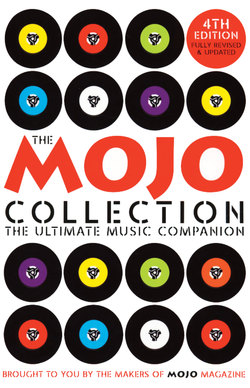Читать книгу The Mojo Collection - Various Mojo Magazine - Страница 67
На сайте Литреса книга снята с продажи.
The Association And Then … Along Comes Classy, harmony pop, and one of the most-played songs of all time.
ОглавлениеRecord label: Valiant
Produced: Curt Boettcher
Recorded: GSP Studios (aka Gary Paxton’s garage) and Columbia Studios, Hollywood; June 1966
Released: August 1966
Chart peaks: None (UK) 5 (US)
Personnel: Gary Alexander (v, g); Terry Kirkman (v, woodwind, reeds); Russ Giguere (v, g, pc); Brian Cole (v, b); Ted Bluechel (v, d); Jim Yester (v, g, k); Gary Paxton (e); Pete Romano (e). The above musicians were mainly replaced by sessionmen including Mike Deasy (g); Ben Benay (g) and Hal Blaine (d)
Track listing: Enter The Young; Your Own Love; Don’t Blame It On Me; Blistered; I’ll Be Your Man; Along Comes Mary (S); Cherish (S); Standing Still; Message Of Our Love; Round Again; Remember; Changes
Running time: 31.24
Current CD: Collectors Choice CCM06472
Further listening: Third album, Insight Out (1967), contains the classics Never My Love and Windy; Waterbeds In Trinidad! (1972) is outstanding
Further reading: www.theoriginalassociation.com
Download: Not currently legally available
If ever a group were sabotaged by their image, it was surely The Association. For on the sleeve of their classic 1966 debut, the sextet are pictured shamelessly togged out in matching three-piece suits, shirts and ties and proudly polished leather shoes. Naturally, all self-respecting rock fans dismissed them – a colossal shame, for the album is a delightful lite-psychedelic gem by one of rock’s great harmony bands, produced with dazzling wit and flair by Curt Boettcher, with finger cymbals, electronic sound effects and crazily inspired harmonies that dart insanely in and around the lead vocals.
Boettcher, who died in 1987, did not remember the band fondly. ‘They were never able to handle their own success,’ he told Zigzag. ‘It really changed them as people.’ Despite the gushing sleeve notes improbably claiming that Terry Kirkman played 23 instruments, Boettcher also revealed that the music on the album was played by sessionmen. This fact isn’t disputed, with Bluechel admitting to Goldmine that ‘all those tracks were recorded by studio musicians’. Kirkman adds: ‘We had the same guys who played for The Beach Boys’, although Alexander does assert that he played on all the sessions.
The album’s most famous track is Along Comes Mary, credited to Tandyn Almer, although Boettcher always maintained he cowrote the song. The song was rumoured to refer to marijuana, although the lyrics are impenetrable. Eight of the album’s 12 songs were written by band members, the best of which is Kirkman’s Cherish: one of the era’s most beautiful love songs and an American Number 1 single, displaying the complex and striking multi-part harmonies typical of the band. Unfortunately, its success marked the end of their relationship with Boettcher.
‘They informed me during the fourth week of Cherish being at the top that they no longer required my services and were going to produce themselves,’ recalled Boettcher bitterly. It was a catastrophic miscalculation by the band, who never sounded so enchanting again.
At the last count, Cherish had been played on US radio over four million times.
